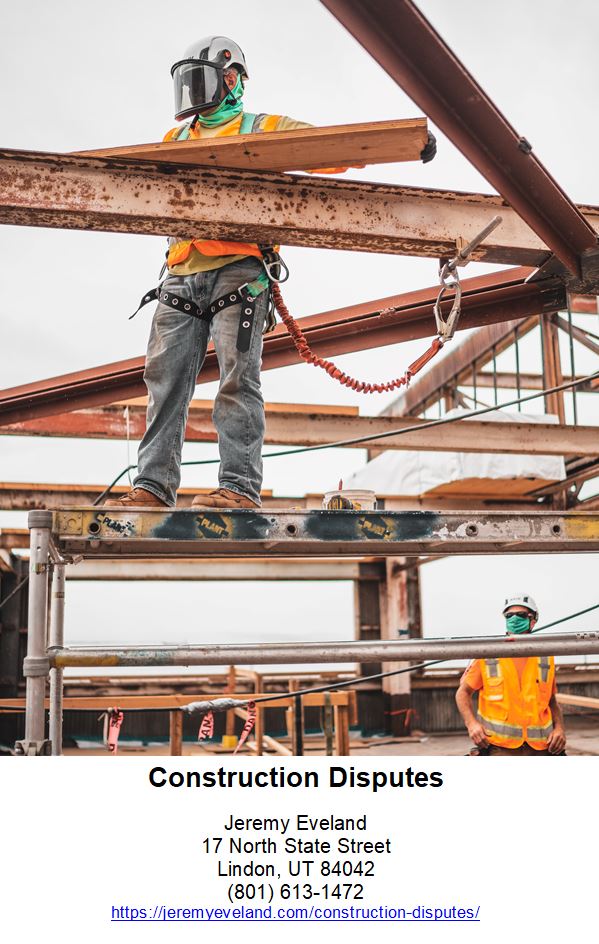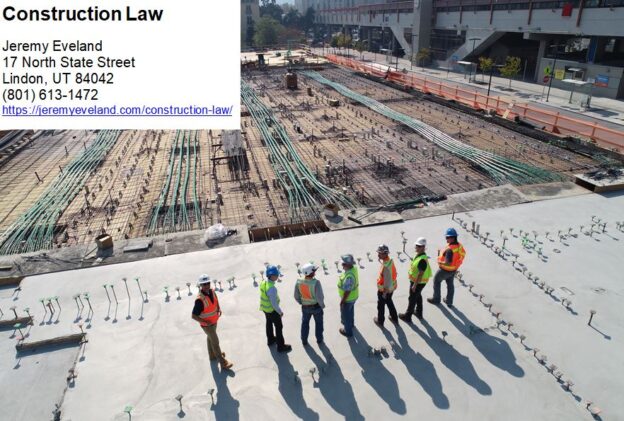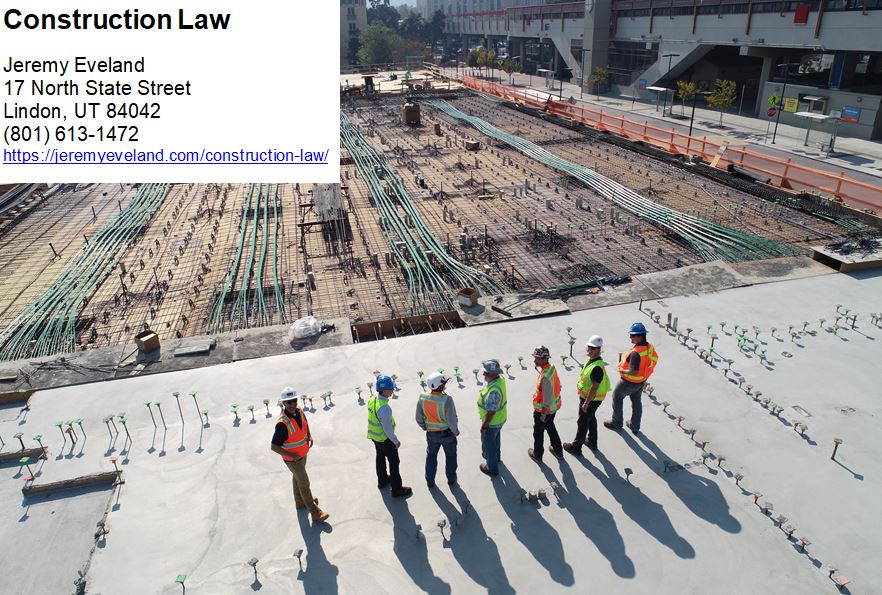Are you facing legal issues related to construction? Look no further! In this article, we present to you the best construction law firms that can provide you with the expert assistance you need. We understand that dealing with legal matters can be overwhelming, so our aim is to guide and reassure you throughout the process. With our informative and engaging content, we will address common legal concerns and create emotional connections. Additionally, our articles are optimized for search engines, ensuring that you can easily find the information you need. Don’t hesitate to take the next step and seek prompt assistance by calling the phone number of the attorney listed on our website.
1. Why Construction Law Firms are Important
When it comes to construction projects, legal issues are bound to arise. From contract disputes to compliance with building codes and regulations, having a reliable construction law firm by your side is crucial. Construction law firms specialize in navigating the complex legal landscape of the construction industry, ensuring that your rights and interests are protected throughout the project. Whether you are a contractor, subcontractor, owner, or developer, understanding the importance of construction law firms is essential for a successful and stress-free construction experience.
2. Key Considerations for Choosing the Best Construction Law Firm
When it comes to selecting a construction law firm, there are several key factors to consider. By taking these considerations into account, you can ensure that you choose the best law firm to meet your specific needs. Here are the top considerations when choosing a construction law firm:
2.1 Experience and Expertise
One of the first things to consider when choosing a construction law firm is their experience and expertise in the field. Construction law is a specialized area of practice, and an experienced firm will have a deep understanding of the unique legal challenges that construction projects can bring. Look for a firm with a proven track record of handling construction-related cases successfully.
2.2 Reputation and Track Record
A construction law firm’s reputation and track record can tell you a lot about their capabilities and professionalism. Look for testimonials from past clients and consider their success stories. A firm with a strong reputation in the industry is more likely to provide high-quality legal services and deliver favorable outcomes.
2.3 Resources and Team Potential
Construction projects can be complex and involve multiple parties, which may require the involvement of a team of lawyers. Ensure that the law firm you choose has the necessary resources and a capable team to handle your case effectively. This includes having access to experts, consultants, and support staff who can contribute to the success of your legal strategy.
2.4 Client Testimonials and Referrals
One of the best ways to gauge the credibility and reliability of a construction law firm is to seek out testimonials and referrals from their previous clients. Reach out to other industry professionals and inquire about their experiences with the firm. Positive testimonials and referrals can give you confidence in your decision to choose a particular firm.
2.5 Communication and Responsiveness
Effective communication is vital in any legal matter. Look for a construction law firm that emphasizes clear and open communication with their clients. They should be responsive to your inquiries and keep you updated on the progress of your case. A firm that prioritizes transparent communication fosters a strong attorney-client relationship and ensures that you are well-informed throughout the legal process.

3. Top Construction Law Firms and Their Specializations
Now that you understand the key considerations for choosing a construction law firm, let’s take a look at some of the top firms in the industry and their specializations:
3.1 ABC Construction Law Firm – Specializes in Contract Disputes
ABC Construction Law Firm has a stellar reputation for handling contract disputes in the construction industry. With their extensive experience in negotiating and litigating contract disagreements, they can help you resolve any contractual disputes that may arise during your construction project.
3.2 XYZ Construction Law Firm – Expertise in Construction Defects
If you are facing issues related to construction defects, XYZ Construction Law Firm is the go-to firm. With their specialized knowledge in construction defect law, they can assist you in understanding your rights and responsibilities, as well as guide you through the process of resolving construction defect claims.
3.3 LMN Construction Law Firm – Focuses on Labor and Employment Issues
LMN Construction Law Firm specializes in the complex field of labor and employment law specific to the construction industry. From hiring practices to employee rights and disputes, their team of skilled attorneys can provide valuable advice and representation to protect your interests.
3.4 PQR Construction Law Firm – Specializes in Insurance Claims
Insurance claims can be a major hurdle in construction projects. PQR Construction Law Firm excels in navigating the intricacies of insurance claims and coverage disputes. They can help you understand your insurance policies, negotiate with insurance companies, and ensure that you receive fair compensation for any losses or damages.
3.5 DEF Construction Law Firm – Expertise in Government Contracts
If you are involved in government construction projects, DEF Construction Law Firm has the specialized expertise you need. They understand the complexities of government contract regulations and compliance and can guide you through the process, ensuring that you meet all requirements and avoid potential legal pitfalls.
4. Understanding Common Legal Concerns in Construction
Construction projects can give rise to a range of legal concerns. It’s important to have a basic understanding of these common legal issues to better navigate the construction process. Here are some key legal concerns in construction:
4.1 Contractual Disputes and Breach of Contract
Contracts are the foundation of construction projects, and disputes can arise when parties fail to fulfill their contractual obligations. Construction law firms can assist in resolving these disputes and ensuring that your rights under the contract are protected.
4.2 Construction Defects and Liability
Construction defects can cause significant financial and legal consequences. Understanding liability issues and working with a construction law firm specialized in construction defects can help you address these concerns and seek appropriate remedies.
4.3 Labor and Employment Issues
The construction industry often faces complex labor and employment issues such as wage disputes, discrimination claims, and safety regulations. Construction law firms can provide guidance and representation in navigating these matters, ensuring compliance with labor laws and protecting your rights.
4.4 Insurance Claims and Coverage Disputes
Insurance claims can be complex and time-consuming, especially in the construction industry. Construction law firms well-versed in insurance law can help you navigate the claims process, handle coverage disputes, and maximize your chances of receiving fair compensation for damages or losses.
4.5 Government Contract Regulations and Compliance
Government construction projects come with a unique set of regulations and compliance requirements. Construction law firms with expertise in government contracts can help ensure compliance, address any issues that arise, and protect your interests throughout the process.

5. How Construction Law Firms Can Assist You
Construction law firms play a vital role in assisting clients with their legal needs in the construction industry. They provide a range of services and support to ensure that your construction projects run smoothly and that your legal rights are protected. Here are some ways construction law firms can assist you:
- Providing legal advice and guidance during contract negotiation and review.
- Representing clients in contract disputes, mediations, arbitrations, or court litigation.
- Assisting with the resolution of construction defects and liability claims.
- Advising on labor and employment issues, including drafting employment contracts and addressing disputes.
- Handling insurance claims and coverage disputes on behalf of clients.
- Guiding clients through the complexities of government contracts and ensuring compliance.
By seeking the assistance of a construction law firm, you can confidently navigate the legal challenges that often arise in construction projects and protect your interests throughout the process.
6. Building Strong Legal Strategies for Construction Projects
To ensure the success of your construction projects, it is crucial to build strong legal strategies. Construction law firms can help you develop and implement these strategies to mitigate risks and ensure positive outcomes. Here are some key components of building strong legal strategies for construction projects:
6.1 Documentation and Contract Review
Thorough documentation and meticulous contract review are essential for avoiding future disputes and protecting your rights. Construction law firms can assist in drafting and reviewing contracts to ensure clarity, prevent ambiguity, and address any potential legal issues.
6.2 Mediation and Alternative Dispute Resolution
In the event of a dispute, construction law firms can help you explore mediation and alternative dispute resolution methods. These approaches can save time, money, and preserve business relationships by avoiding the need for lengthy court litigation.
6.3 Litigation and Arbitration
Sometimes, litigation or arbitration becomes necessary to resolve construction disputes. Construction law firms can represent you in court proceedings or arbitration hearings, using their expertise to present a compelling case on your behalf.
6.4 Risk Assessment and Mitigation
Construction projects inherently involve risks, such as unforeseen delays or budget overruns. Construction law firms can conduct risk assessments, identify potential legal vulnerabilities, and develop strategies to mitigate risks, ensuring that your project progresses smoothly.
6.5 Compliance with Building Codes and Regulations
Compliance with building codes and regulations is paramount to avoid legal repercussions and ensure the safety and integrity of your construction projects. Construction law firms can provide guidance on meeting these requirements and navigating any compliance issues that may arise.
By incorporating these elements into your legal strategy, with the assistance of a construction law firm, you can minimize legal risks and maximize the success of your construction projects.
7. The Cost of Hiring Construction Law Firms
The cost of hiring construction law firms can vary depending on several factors, including the complexity of the legal matter, the firm’s reputation, and the experience of the attorneys involved. It is crucial to have a transparent discussion about fees and billing structures with potential law firms before engaging their services.
Some construction law firms may charge an hourly rate for their services, while others may offer fixed-fee arrangements for specific tasks or cases. It is important to understand the fee structures and ensure that they align with your budget and anticipated legal needs.
While legal services can be an investment, it is essential to consider the potential costs and risks of not having legal representation. The expertise and guidance provided by construction law firms can help avoid costly mistakes, disputes, and delays, ultimately saving you time and money in the long run.
8. Frequently Asked Questions (FAQs) About Construction Law Firms
Here are answers to some commonly asked questions about construction law firms:
8.1 How do I find the best construction law firm for my needs?
To find the best construction law firm for your needs, consider factors such as their experience in the construction industry, specialization in relevant legal areas, reputation, track record, client testimonials, and communication approach. It is also helpful to seek referrals from trusted sources and conduct thorough research on potential firms before making a decision.
8.2 What should I expect during the initial consultation?
During the initial consultation with a construction law firm, you can expect to discuss your legal concerns, provide relevant documentation, and receive an evaluation of your case. This is a valuable opportunity to ask questions, gain clarity on your legal rights and options, and assess whether the firm is the right fit for your needs.
8.3 How much does it cost to hire a construction law firm?
The cost of hiring a construction law firm can vary widely, depending on factors such as the complexity of the legal matter, the firm’s expertise, and the fee structure. Some construction law firms may charge an hourly rate, while others may offer fixed-fee arrangements. It is important to discuss fees and billing structures upfront to ensure that they align with your budget and anticipated legal needs.
8.4 Can construction law firms help with international projects?
Yes, many construction law firms have the expertise to assist with international construction projects. They can navigate the complexities of international laws, regulations, and contracts, helping you address legal concerns and protect your interests regardless of the project’s location.
8.5 What is the typical timeline for resolving a construction dispute?
The timeline for resolving a construction dispute can vary greatly depending on the complexity of the issues involved, the willingness of the parties to cooperate, and the chosen dispute resolution method. While some disputes can be resolved through negotiation or mediation relatively quickly, others may require court litigation or arbitration, which can extend the resolution timeline.

9. Conclusion
Construction law firms are an invaluable resource for anyone involved in the construction industry. They bring specialized knowledge and experience to the table, ensuring that legal concerns are addressed and resolved efficiently. By considering the key factors when choosing a construction law firm, understanding common legal concerns, and building strong legal strategies, you can navigate the construction process with confidence and protect your interests. Don’t hesitate to reach out to a reputable construction law firm to discuss your specific needs and secure the legal guidance you need for a successful construction project.
10. Call-to-Action
If you are in need of legal assistance for your construction project, don’t hesitate to contact us at [Phone Number]. Our expert attorneys at [Construction Law Firm Name] are here to provide you with the comprehensive legal support and guidance you need. Take the next step and call us to discuss your construction-related legal concerns today!
















